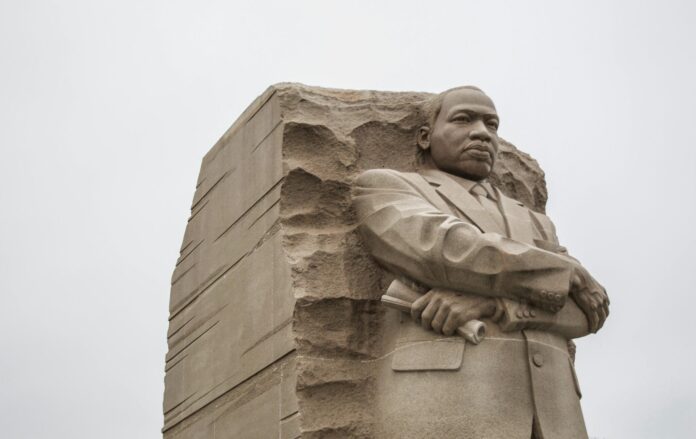Resilience connects generations, communities, and cultures. Rooted in justice and community, I’ve come to understand that tension — the kind Dr. Martin Luther King, Jr. described as “both healthy and necessary for growth”—challenges us to confront our values and strive for a better future.
In this moment of history, we face a choice: Will we allow fear to divide us, or will we embrace resilience and collective power rooted in shared humanity?
Dr. King’s reflections in his book “Where Do We Go from Here: Chaos or Community?” remind us that tension compels us to confront injustices and envision a more just society.
“Nonviolent coercion always brings tension to the surface,” he wrote, urging us to recognize that those who agitate for rights do not create division, but reveal buried truths. This tension, he argued, is not destructive but necessary. It challenges us to dismantle systemic oppression and choose community over chaos.
Fear divides, resilience unites
Fear thrives in division, suggesting that change is too disruptive and equity too costly. Yet even in uncertainty, resilience and hope persist — sometimes with immense cost. History bears witness to this truth: The Greensboro sit-ins and Montgomery bus boycotts were not merely “challenges,” but battles marked by violence, fear, and profound harm inflicted on those who dared to resist oppression.
Holding onto hope amidst such lived realities required extraordinary courage and sacrifice. These movements did not simply embrace tension; they endured and navigated systemic brutality to create pathways toward justice. Their stories remind us that resilience is not a default state but a response born out of necessity, demanding unyielding strength and collective determination.
In education, as in society, tension arises when we challenge systems that perpetuate inequity. Educators bear immense responsibility: Fostering critical thinking, promoting equity, and nurturing collaboration and justice. The choices we make in classrooms ripple outward, shaping minds and challenging entrenched biases.
Dr. Gholdy Muhammad, a professor of curriculum and instruction at the University of Illinois-Chicago, reminds us that literacy is more than a skill; it is a tool for identity, intellectualism, and liberation. Our students are not just learners — they are agents of change, growing into their power and responsibility.
The collective power of educators
In moments of upheaval, retreating into comfort is tempting. But educators, like the leaders of past movements, must press forward. Modeling resilience means teaching students to question systems, pursue justice, and collaborate — equipping them to face challenges with clarity and courage. bell hooks reminded us that education is a practice of freedom — a space for critical engagement and transformation.
In this context, freedom means fostering intellectual liberation, enabling learners to challenge oppression and imagine new futures. Through education, we empower individuals to build a more equitable society.
Resilience as a collective effort and hope as resistance
Resilience is not merely an individual trait; it thrives in collective action and shared wisdom. The Mossi people of Burkina Faso exemplify resilience through elder-led governance and sustainable ecological practices that enable them to adapt to systemic challenges and ensure community well-being. Their example highlights how cultural strength and collaboration foster long-term growth and survival.
Hope is an act of resistance, not a denial of reality. It is the deliberate choice to envision and work toward a just future, even when challenges feel overwhelming. Hope inspires action, galvanizing communities to confront injustice and build solidarity. As Thomas Sankara declared, “We must dare to invent the future.” Resilience, when rooted in equity and community, provides the foundation for that future.
Dr. King’s legacy reminds us that “no one of us can be free until everybody is free.” James Baldwin’s insight that “not everything that is faced can be changed, but nothing can be changed until it is faced” echoes this truth. Together, these voices challenge us to lean into the work ahead with courage and hope.
Education as a path forward
Education sits at the heart of transformative work. It is where students learn to navigate tension, question injustice, and imagine new possibilities. As educators, we must create spaces where students develop the critical consciousness that W.E.B. Du Bois envisioned — one that equips them to see the world as it is and as it could be.
This moment calls for collective action rooted in shared purpose. Educators play a vital role in shaping how future generations embrace resilience, equity, and justice, modeling collaboration and empathy along the way. Communities must find strength in partnership, fostering a future that prioritizes hope, shared humanity, and meaningful progress.
As we honor Dr. King’s legacy, we must remember that resilience is not the absence of tension but the courage to grow through it. Whether in our classrooms, communities, or collective actions, we have the power to choose hope, foster unity, and pursue justice. Now is the time to embrace that responsibility.
